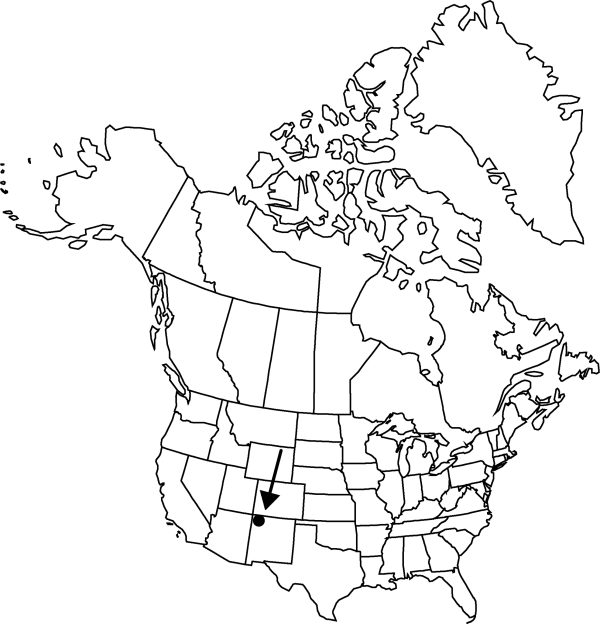Abronia bolackii
Novon 12: 167, fig. 1. 2002.
Plants perennial, short caulescent or nearly acaulescent. Stems decumbent to erect, minutely and sparsely glandular-pubescent or ± glabrate, arising from cordlike rhizomes. Leaves: petiole 1–4 cm; blade elliptic-oblong to ovate, 1–4 × 0.5–2 cm, margins entire to shallowly sinuate, often ± undulate, surfaces minutely puberulent or glabrous (especially in age). Inflorescences: peduncle longer than subtending petiole; bracts broadly lanceolate, ovate, obovate, or almost round, 5–10 × 3–10 mm, scarious, apex acute, obutse, or rounded, glandular-puberulent; flowers 15–25. Perianth: tube greenish, 7–11 mm, limb white, 3 mm diam. Fruits broadly turbinate, 5–7 × 3–5 mm, scarious, apex truncate and slightly beaked; wings (3–) 5, dilated distally and ± flattened perpendicular to plane of lamina, dilations ± as long as wide, thin walled, cavities extending throughout.
Phenology: Flowering spring–summer.
Habitat: Gypseous sandy or gravelly soils, open areas, among sparse shrubs
Elevation: 1700 m
Discussion
As far as is known, Abronia bolackii is restricted to gypseous lenses of the Ojo Alamo Formation in San Juan County, New Mexico.
Selected References
None.
